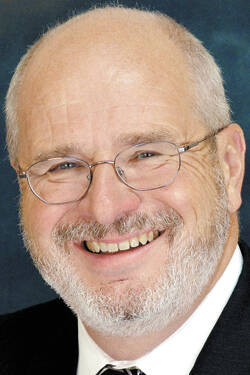Kurt Vonnegut didn’t seem himself.
It was not that long before he died. He and I were dining at an Italian restaurant not far from his brownstone in Manhattan. By that time, we had been friends for several years, two guys who got together for lunch or dinner to share laughs and stories whenever work or life brought me to New York.
This time, somehow, somewhere around the second glass of red wine for each of us, the conversation turned to his legacy. He seemed worried that he’d be forgotten.
I told him that was nonsense. His classic novel “Slaughterhouse-Five” alone would guarantee that people would continue to read him.
Kurt wouldn’t have it.
“No,” he said. “You’re lucky if you get to have some influence in the time in which you live. That’s all you can expect, and you’re lucky if you get that much.”
Then the conversation took an odd turn, one I have puzzled over ever since.
He mused about the people who would write biographies of him. He wondered if they would understand where he came from and what he’d tried to do.
At times, he seemed to hint that he wanted me to write his life story.
But he didn’t say so directly.
Normally, I’m not shy about asking people what they mean or what they want. Asking questions is what I do for a living.
In this instance, though, I didn’t.
Instead, I listened. I offered a friend’s encouragement.
Some of my hesitation sprang from an understanding of the complexities of his life. Like most people’s, his had its share of messiness—a divorce from his first wife, then a turbulent second marriage. Diving into all that, I worried, could be contentious.
But the larger reason I hung back is that I couldn’t convince myself this was serious—that he was serious. I didn’t want to sound like a presumptuous idiot if he just was musing aloud to a friendly ear.
I had to believe he would have better options.
He, after all, was one of the most important writers of his age. He had written possibly the greatest war novel ever. His entire body of work had prompted several generations of readers to think anew about what it means to be human—and to be a moral being.
He even kept them laughing while he did so.
I was a journeyman journalist, one who crafted prose meant to speak to the moment rather than the ages. I’d read Kurt’s books and knew something about his life, but I wasn’t a Vonnegut scholar.
There had to be someone better suited, I thought. I let the moment pass.
But not without some confused regret.
That regret intensified when I read the authorized biography about Kurt. Many of his family members and friends detested the book.
I could see why. It captured none of Kurt’s warmth and generosity and did not reflect at all the man I knew.
It made me wonder anew if I’d allowed my own insecurities to push me to fail a friend.
To ease my conflicted feelings, I wrote some magazine pieces about Kurt and helped produce a documentary about “Slaughterhouse-Five.”
But I wondered—often—about that conversation with Kurt.
The latest round of re-examination came when I saw Robert Weide’s fine documentary, “Kurt Vonnegut: Unstuck in Time.”
Weide’s film captures the guy I knew, the one who thought a good joke offered one of the best windows on the world and who gloried in telling tales about Indiana.
But Weide’s look at Kurt’s life also revealed the man’s loneliness, his sense of isolation as the members of his birth family died, old friends passed on and the world moved along day by day.
It’s sometimes easy to forget that even the most talented and accomplished people still need what we all need—friendship, kindness, love. No wonder a recurring theme in his later writing was a hunger to have more extended families, more places of warmth in an often-cold world.
We all want people who see us as we are and love us anyway.
I still don’t know what to make of that conversation with Kurt.
Probably never will.
But I am glad that I once wrote him a note saying he was “a great man who is also a good guy—no easy thing.”
True then.
True now.




